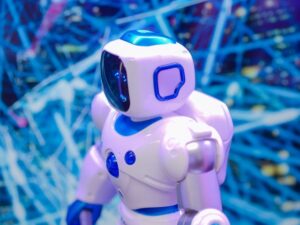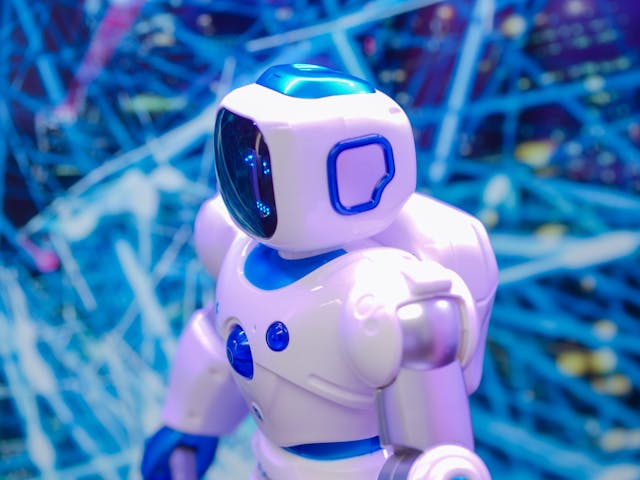Introduction
Artificial intelligence (AI) has taken significant strides in various domains, from self-driving cars to personalized digital assistants. However, one controversial development that has gained attention is the emergence of “Nude AI” technology—AI-driven software designed to generate, manipulate, or enhance nude or sexually explicit images. This technology, while popular among certain online communities, raises numerous ethical, social, and legal concerns.
What Is Nude AI?
Nude AI refers to artificial intelligence algorithms designed to identify, generate, or manipulate images of nudity. These tools use advanced deep learning models, typically trained on vast datasets, to recognize human bodies, detect clothing, and generate realistic nude representations. Some versions can even remove clothing from images of fully dressed individuals or create entirely synthetic explicit content.
The technology is often powered by Generative Adversarial Networks (GANs), a type of AI model where two neural networks—the generator and the discriminator—compete to create realistic images. As the generator improves its output, the discriminator becomes better at identifying whether an image is real or AI-generated, leading to hyper-realistic results. This technological breakthrough is what allows Nude AI to produce increasingly convincing and realistic images.
The Appeal and Applications of Nude AI
Despite the controversies surrounding it, there are certain applications where Nude AI has garnered interest:
Adult Entertainment Industry: Nude AI can create content on demand without the involvement of human models, addressing concerns related to consent and exploitation. It allows for tailored content creation, catering to specific preferences while maintaining anonymity.
Art and Digital Creativity: Some artists use AI tools to explore the boundaries of human expression, utilizing Nude AI to create provocative art pieces that challenge social norms. In this context, AI-generated nudity is seen as a form of digital art rather than exploitation.
Fashion and Design: In some experimental cases, fashion designers have used Nude AI to envision how garments fit and interact with the human body. These simulations help in optimizing designs without the need for live models, potentially saving time and resources.
Sexual Health and Education: There’s potential for using AI-generated models for sexual education and health, offering realistic depictions without using real people’s bodies. This could help in areas where explicit materials for educational purposes are restricted.
However, the use of this technology extends beyond these legitimate applications, leading to numerous ethical and legal concerns.
Ethical and Privacy Concerns
While Nude AI has some positive applications, it has also been widely misused, particularly in the creation of deepfake pornography, which has become a significant issue online. The rise of deepfake technology allows users to create pornographic videos of individuals without their consent by superimposing their faces onto explicit content. This has led to:
Violation of Privacy: Nude AI can be used to generate nude images of unsuspecting individuals, often without their knowledge or consent. This is particularly problematic when celebrities or even private individuals are targeted, leading to emotional distress and damage to personal reputations.
Non-Consensual Pornography: One of the most severe abuses of Nude AI is in the creation of deepfake pornography, where someone’s face is digitally superimposed onto explicit videos. Victims of this abuse, often women, have limited legal recourse, especially in countries where the laws have not yet caught up with the technology.
Potential for Blackmail and Harassment: The availability of AI tools that can generate convincing nude images opens the door for malicious actors to create fake nudes of colleagues, ex-partners, or even strangers to use as blackmail material. This can have devastating consequences on the victims’ personal and professional lives.
Ethical Dilemmas in AI Development: For developers, there’s a growing debate about whether such technologies should be created in the first place. While AI is meant to advance humanity, using it for purposes that can cause psychological harm, perpetuate misogyny, or exploit people’s images challenges the ethical principles underlying technological innovation.
Legal Ramifications and Challenges
The rapid development of AI technologies like Nude AI poses significant legal challenges. The technology is moving faster than legislation, making it difficult for governments to effectively regulate its use. Current legal frameworks around privacy, consent, and defamation are often inadequate to address the unique issues that arise with Nude AI.
Lack of Clear Legislation: In many countries, there are no explicit laws against generating or distributing AI-generated nudes, especially if they involve public figures. This legal grey area allows perpetrators to evade consequences, making it harder for victims to seek justice.
Digital Rights and Consent: The core issue with Nude AI is the concept of digital consent. Should individuals have the right to control how their likeness is used, especially when it comes to intimate or explicit content? As AI evolves, the need for robust digital consent frameworks becomes more urgent.
Jurisdictional Issues: The internet is a global platform, making it challenging to enforce laws across borders. Even if one country outlaws deepfake porn, the content can easily be hosted in another country with more lenient laws.
Potential for Abuse in Political Contexts: There is a growing concern that Nude AI could be weaponized for political attacks. Imagine a scenario where AI-generated explicit content is used to discredit a political candidate, potentially influencing elections.
Addressing the Dark Side: Possible Solutions
Given the ethical and legal challenges, it is crucial to explore solutions that can help mitigate the misuse of Nude AI:
Stricter Legislation and Regulations: Governments need to introduce clear laws that criminalize the creation and distribution of AI-generated explicit content without consent. This includes specific provisions for deepfake pornography and privacy breaches.
AI Detection Tools: Technology companies are developing AI-driven solutions that can detect deepfakes and AI-generated nudes. These detection tools can help social media platforms and law enforcement agencies identify and remove non-consensual content before it spreads.
Public Awareness Campaigns: Educating the public about the existence and risks of Nude AI is crucial. People need to understand how the technology works and the potential consequences of sharing or consuming such content.
Ethical Guidelines for AI Developers: The AI community must establish ethical guidelines to discourage developers from creating and distributing harmful applications. Encouraging responsible innovation can help prevent the misuse of AI technology.

The Future of Nude AI: What Lies Ahead?
The future of Nude AI is uncertain, as it remains a field caught between technological advancement and ethical dilemmas. On one hand, AI will continue to evolve, making it even easier to create hyper-realistic images and videos. On the other hand, the push for stronger regulations and AI detection tools may limit the spread of non-consensual content.
The development of AI technology is driven by both positive innovation and harmful exploitation. It is up to policymakers, developers, and society at large to strike a balance between encouraging technological progress and protecting individual rights. As AI becomes increasingly integrated into our lives, it is crucial to address the ethical, legal, and social challenges posed by Nude AI before it becomes an even larger problem.
Conclusion
Nude AI represents a double-edged sword—while it has applications in art, fashion, and even sexual education, it also carries the potential for serious misuse, particularly in the realms of privacy invasion and non-consensual pornography. The implications for privacy, ethics, and the law are vast, and society must grapple with these issues to ensure that technology serves as a force for good rather than a tool for harm.
The development and use of AI technology should be guided by principles of consent, privacy, and ethical responsibility. As we continue to explore the capabilities of AI, it is imperative that we also create safeguards to protect individuals from potential abuse. The future of Nude AI—and AI in general—will depend on how well we can navigate these complex challenges while harnessing the benefits of technology.




